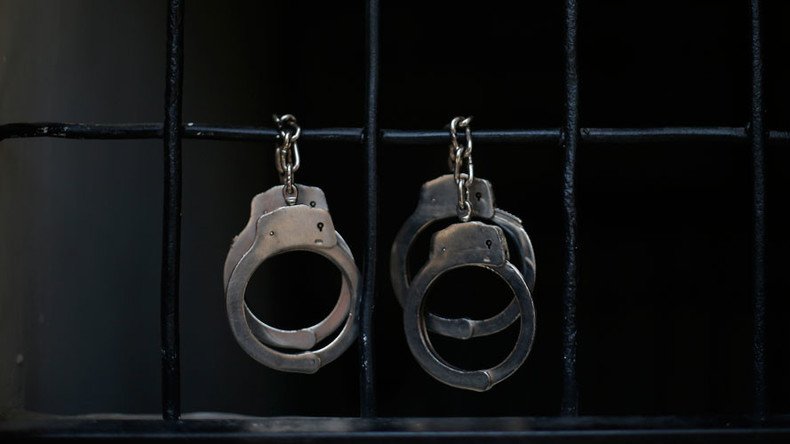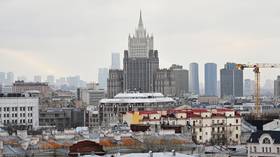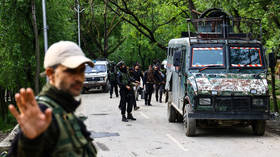Wrong suspect in Berlin attack claims abuse in police custody – Guardian

A Pakistani asylum-seeker, initially arrested in Germany as a presumed suspect in the Berlin truck attack, says he was subjected to physical and mental abuse, according to a Guardian report. The German Police have fiercely denied the allegations.
Naveed Baloch, a 24-year-old asylum seeker from Balochistan, one of the poorest provinces of Pakistan, told the Guardian he was only detained by police because he ran across the road near the Breitscheidplatz, the public square in central Berlin where the truck attack took place.
READ MORE: Berlin truck attack cut short due to vehicle’s automatic emergency brakes – media
He was leaving his friend’s house on the evening of December 19 and increased his pace as he saw a car on the road heading in his direction.
“I then realized it was a police car,” Baloch said. “I stopped when they beckoned to me, and showed them all the ID I had on me.”
At first, officers let him go, but within seconds called him back, handcuffed him and forced him into the car. Throughout that night, Baloch was blindfolded and taken from “one police station to another place” about 10 minutes away. Two police officers dug the heels of their shoes into his feet and put pressure on his neck – treatment apparently given to high-risk terrorist suspects.
UPDATE: Police detained ‘wrong man’ #BerlinAttack suspect still at large – German media https://t.co/wSxFypCQfKpic.twitter.com/pLt2NknOeg
— RT (@RT_com) December 20, 2016
The men then undressed Baloch and took photographs of him.
“When I resisted, they started slapping me,” he recalled. Investigators were quick to accuse the asylum seeker of carrying out the attack, interrogating him with prompts like: “Someone took a vehicle and drove it into a crowd killing many people. And you were behind the wheel of that truck, weren’t you?”
Knowing nothing of the truck attack that killed 12 people, Baloch told the interpreter that “I cannot drive at all ... neither can I even start a vehicle.” He added the conversation was awkward because the police interpreter did not speak his native Balochi, but Punjabi and Urdu, languages he could barely understand, according to the Guardian.
Meanwhile, the Berlin Police indignantly denied the allegations. “It is completely false, what they (the Guardian) wrote,” Winfrid Wetzel, head of the press office of the Berlin Police, told the Frankfurter Algemeine Zeitung.
“Today we talked to the person concerned and he was stunned about the article." Though Naveed B. confirmed that he talked to two journalists, he stated that there was no interpreter present during the conversation, only his acquaintance who spoke his language a little. “He told us, ‘They put words into my mouth. I was neither beaten nor badly treated.’”
At the time, German authorities told media they are confident that the Pakistani man was behind the attack. On December 20, Interior Minister Thomas de Maiziere gave more details, saying that Baloch had come to Germany in February via the so-called ‘Balkan route’ and was still waiting for his asylum application to be processed. The man in question, the minister said, denied all charges.
However, following de Maiziere’s remarks, Berlin police began to cast doubt on Baloch’s involvement in the terrorist attack. Later in the day, Chief Klaus Kandt said that it was not absolutely clear if the Pakistani was actually behind the wheel of the truck.
Shortly afterwards, a high-ranking Berlin police source told Die Welt: “We have the wrong man. And this is a new situation. The actual perpetrator is still at large and armed, and could inflict more damage.”
Although Baloch repeatedly told officers he fled Pakistan because of “death and war” and came to Germany, which treats people “like my mother,” he was only given tea and biscuits over two days and one night in custody. He was also forced to sleep on a wooden bed without a mattress, with his hands cuffed behind his back on the first night.
Finally, he was released from custody, while another man – a Tunisian national Anis Amri – was identified as an actual perpetrator.
“They explained to me that because I had run across the road when they picked me up, they had reason to believe I might be a criminal. I told them I understood,” Baloch told the newspaper.
READ MORE: ‘Signs’ Berlin attack suspect passed through Netherlands on way to Italy – police
Now, Baloch must keep a low profile and stay in a hideout provided by the police for the next two months, The Guardian reported. He has to inform the police every time he steps outside, and does not know what the future holds because of his immigration status. At home in Balochistan, he says, his family may face oppression from security services because he was once member of an opposition group that wants the region to secede from Pakistan.
In the meantime, anger is mounting in Germany as to how Amri, who was known to police long before the attack, managed to evade the pursuit and traveled all the way to Italy via the Netherlands and France. The suspect, believed to be a sympathizer of Islamic State (IS, formerly ISIS/ISIL) was shot dead by Italian police last week in the outskirts of Milan during a short exchange of gunfire.













